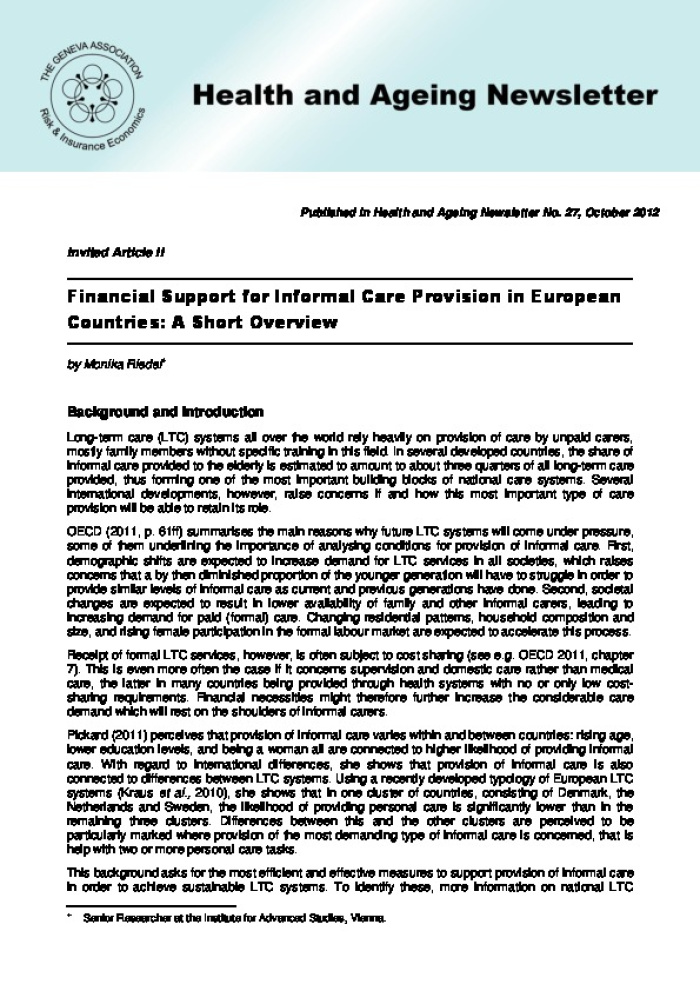Financial Support for Informal Care Provision in European Countries: A Short Overview
Health and Ageing Newsletter No.27

Long-term care (LTC) systems all over the world rely heavily on provision of care by unpaid carers, mostly family members without specific training in this field. In several developed countries, the share of informal care provided to the elderly is estimated to amount to about three quarters of all long-term care provided, thus forming one of the most important building blocks of national care systems. Several international developments, however, raise concerns if and how this most important type of care provision will be able to retain its role.
This background asks for the most efficient and effective measures to support provision of informal care in order to achieve sustainable LTC systems. To identify these, more information on national LTC systems is needed. The report underlying this summary tries to narrow this gap by providing an overview of the availability of cash benefits that can be used to finance informal care in 21 Member States of the European Union and was written in during the ANCIEN project.





